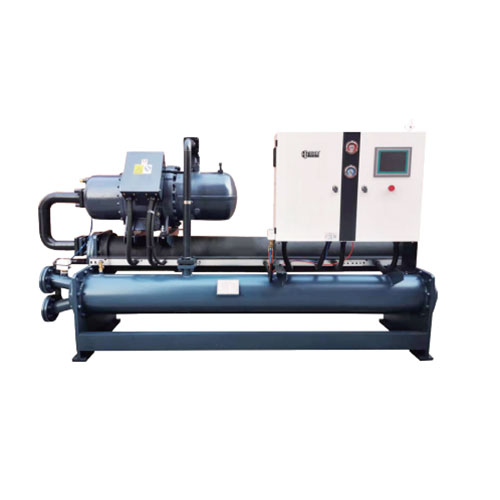Cooled Chillers: The Ultimate Solution for Efficient Temperature Control
2025-03-18
In industries where temperature control is crucial, cooled chillers play a vital role in maintaining efficiency, preventing overheating, and ensuring smooth operations. Whether in HVAC systems, industrial manufacturing, medical facilities, or data centers, cooled chillers provide reliable cooling solutions to maintain optimal temperatures.
This blog will explore what cooled chillers are, their types, benefits, and how to choose the right one for your needs.
What is a Cooled Chiller?
A cooled chiller is a refrigeration system designed to remove heat from liquids or air and dissipate it to maintain a stable temperature in industrial and commercial applications. These systems use compressors, evaporators, condensers, and refrigerants to regulate cooling effectively.
Cooled chillers are commonly used in:
Air conditioning (HVAC) systems for large buildings
Industrial cooling for machinery and manufacturing processes
Medical and laboratory equipment requiring precise temperature control
Food and beverage industries for refrigeration and preservation
Types of Cooled Chillers
1. Air-Cooled Chillers
- Use fans to dissipate heat into the surrounding air.
- Ideal for areas where water supply is limited.
- Requires proper ventilation for efficient cooling.
- Commonly used in commercial buildings, offices, and factories.
2. Water-Cooled Chillers
- Use a water source (such as a cooling tower) to remove heat.
- More efficient and powerful than air-cooled chillers.
- Requires continuous water circulation, making it suitable for large-scale industries.
- Used in hospitals, industrial plants, and large commercial spaces.
3. Absorption Chillers
- Uses heat energy (such as steam or hot water) instead of electricity for cooling.
- Energy-efficient and eco-friendly, often used in waste heat recovery systems.
- Common in chemical plants, refineries, and cogeneration systems.
Benefits of Using Cooled Chillers
1. Energy Efficiency & Cost Savings
- Advanced chiller systems consume less energy while maintaining effective cooling.
- Reduces electricity costs for businesses with high cooling demands.
2. Consistent and Reliable Cooling
- Ensures temperature stability for processes that require precision.
- Prevents overheating of machinery, reducing downtime and maintenance costs.
3. Longer Equipment Lifespan
- Protects industrial equipment, medical devices, and IT systems from heat-related damage.
- Enhances the performance and durability of HVAC and refrigeration systems.
4. Versatile Applications
- Used in food processing, pharmaceuticals, data centers, plastic molding, and commercial HVAC systems.
- Can be tailored to meet specific cooling requirements.
5. Environmentally Friendly Options
- Many modern chillers use eco-friendly refrigerants and energy-efficient designs.
- Water-cooled and absorption chillers reduce carbon footprints by optimizing energy usage.
How to Choose the Right Cooled Chiller
1. Cooling Capacity
- Determine the heat load of your application in tons or kW.
- Higher capacity chillers are needed for large-scale industrial applications.
2. Energy Efficiency Rating
- Look for high COP (Coefficient of Performance) or SEER ratings to reduce energy costs.
- Consider models with variable-speed compressors for improved efficiency.
3. Space and Installation Requirements
- Air-cooled chillers require ample ventilation space.
- Water-cooled chillers need a cooling tower and plumbing system.
4. Maintenance and Operating Costs
- Choose a model with low maintenance requirements and easy access to spare parts.
- Regular servicing ensures optimal performance and longevity.
5. Environmental Considerations
- Opt for low-GWP (Global Warming Potential) refrigerants.
- Absorption chillers offer a sustainable solution for waste heat utilization.
Applications of Cooled Chillers
Industrial Manufacturing – Cooling for plastic molding, laser cutting, and metal processing.
Commercial Buildings – HVAC cooling for offices, hotels, and shopping malls.
Medical & Laboratory – Temperature control for MRI machines, pharmaceutical storage, and research labs.
Food & Beverage – Refrigeration for dairy, brewing, and frozen food production.
Data Centers – Cooling for IT servers and networking equipment.
Conclusion
Cooled chillers are an essential investment for businesses requiring efficient temperature control. Whether you need an air-cooled, water-cooled, or absorption chiller, selecting the right system can improve energy efficiency, reduce costs, and enhance operational reliability.



